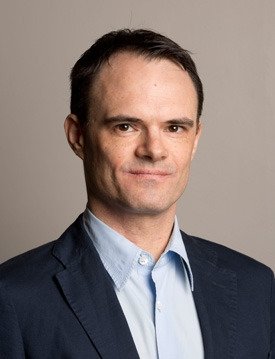Political Scientist Dominic Tierney Redefines What It Means to Win a War

Salon: "The U.S. often goes to war very confident about how the war will turn out"
Since the end of World War II, the United States has fought five major ground wars—one in Korea, one in Vietnam, two in Iraq, and one in Afghanistan. By many measures, we’ve lost four of them (the first Gulf War is the one clear exception). The U.S. may be the world’s dominant military power, but we seem to have lost the ability to win.
Dominic Tierney's new book,The Right Way to Lose a War, begins with a depressing premise: the United States will probably lose again. We live in an age of unwinnable wars, where decisive triumph has proved to be a pipe dream, he writes. For Tierney, a professor at Swarthmore College and a contributing editor at The Atlantic, the solution is not just to prepare to win wars. It’s to develop clearer plans for how to cut our losses and run when the situation demands it, instead of becoming bogged down in a protracted, fruitless conflict.
Tierney recently spoke to Salon on how losing the right way is really a victory.
...
Salon: You write that “before any military operations begin, leaders should analyze likely scenarios for concluding the campaign and achieving their goals.” Do leaders really not do that? I just can’t imagine sitting around, being about to invade a country—
Tierney: [laughs] It does seem staggering, but this isn’t just a problem in the United States. When the Japanese deliberated attacking the United States at Pearl Harbor, the stakes were incredible. I mean, Japan was one tenth as powerful as the United States. But when you look at Japanese thinking in 1941, they focused very much on the tactical challenges of attacking the U.S. fleet at Pearl Harbor. But they had absolutely no plan for achieving enduring success against the United States.
The U.S. exhibited a similar kind of mentality in 2003 in Iraq, where they had a huge, very detailed analysis of the initial stages of the campaign, but not enough thinking about the bigger strategic picture—about creating an enduring regime. It is staggering that countries can do that, especially when the stakes are so high. But that is, in fact, the path of modern war.
Salon: Why are our leaders so short-sighted? Are they stuck in these old ways of thinking about war as a World War II-style conflict between sovereign states?
Tierney: I think there’s a couple of things going on. The U.S. often goes to war very overconfident about how the war will turn out. There’s a sense that it’ll be a cakewalk—that the Iraqis will throw flowers at us, that Afghanistan will be straightforward, and so on.
Another piece is that Washington, the U.S. military, and Americans more generally do not like the idea of nation-building. It’s not a comfortable activity for Americans to be involved with. You don’t plan for it because you don’t really want to be doing it.
Read the full interview at Salon.
Associate Professor of Political Science Dominic Tierney is a senior fellow at the Foreign Policy Research Institute, a contributing editor at The Atlantic, and the author of three additional books, including How We Fight: Crusades, Quagmires, and the American Way of War. Tierney completed his Ph.D. in international politics at Oxford University in 2003 and was a post-doctoral fellow at the Mershon Center at Ohio State University and the Olin Institute at Harvard University before coming to Swarthmore in 2005. In 2008-2009, he was a research fellow at the John F. Kennedy School of Government at Harvard. He recently appeared on MSNBC to discuss his latest book.


